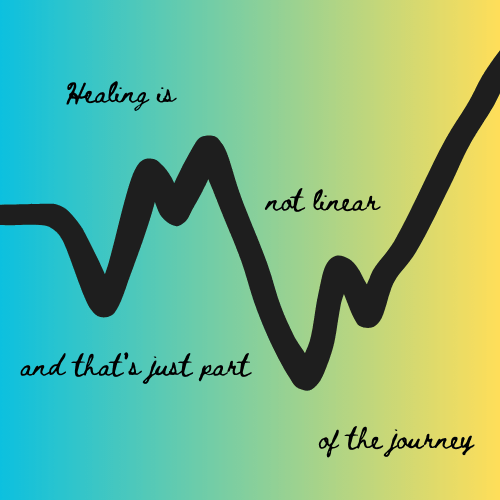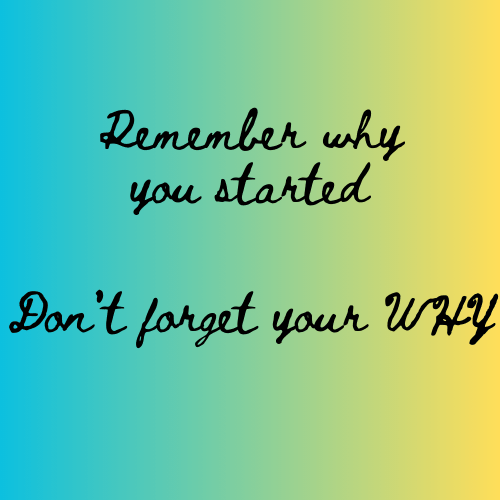How to Get Back on Track after a Relapse
The journey to sobriety is rarely a straight line. Whether you’ve been sober for days, weeks, months, or even years, setbacks can happen. And when they do, they can be tough. I spent 4 years trying to quit, sometimes staying sober for months before I slipped up, and other times it seemed like every other day was another day 1.
If you’ve experienced a relapse, or you're worried about the possibility of one, it’s important to remember that relapse is not a failure—it’s simply a part of the process. You are not defined by a single moment or slip-up. What matters most is that you learn from it and are able to keep moving forward.
Here’s a guide for getting back on track when you slip up—doing so with compassion, understanding, and a sense of empowerment.
Acknowledge and Accept What Happened
The first thing to do after a relapse is acknowledge it without judgement. It’s natural to feel disappointment, frustration, or even shame when a slip-up occurs. But these feelings can keep you stuck if you don’t process them. A relapse doesn't mean you’ve failed - it means you’re human. Be kind to yourself. Remind yourself that setbacks are normal, and they don’t erase the progress you’ve made.
Don't Isolate Yourself
It can be easy to want to hide after a relapse, thinking that you should be ashamed or embarrassed. However, isolation often makes things worse. Reach out to your support system—whether that’s a sponsor, a friend, or a fellow member of a support group. Talking about your experience helps reduce feelings of shame and brings a fresh perspective.
I leaned heavily on the online sober community as I had no-one close to me that understood what I was going through. Being a global community meant that there was always someone online who could give you words of advice or a shoulder to cry on. It was invaluable and I will always be grateful to the strangers on the internet who helped me through my darkest days.
Reflect on What Led to the Slip Up
Understanding the why behind the relapse can help you learn from it and take steps to prevent it from happening again. Was it a specific trigger—stress, an event, a particular person? Did you feel overwhelmed, anxious, or disconnected? Why didn't your usual methods work this time?
Be honest with yourself, but avoid excessive self-blame. This is about gathering insights, not punishing yourself.
Each relapse gives you an opportunity to learn. What lessons can you take away from this experience? Perhaps there’s something in your routine or mindset that needs to change. Maybe there’s a specific coping mechanism you can work on strengthening. The key is not to dwell on the past but to use it as a stepping stone for growth.
I learned to recognise that my slip ups were generally always related to boredom, loneliness, FOMO and/or just wanting to numb life for a while. Once I acknowledged these were my weaknesses, it became a lot easier to work on my feelings around each of them.
Reaffirm your Commitment
A relapse doesn’t erase the work you’ve done, and it doesn’t mean you need to start from scratch. Reaffirm your commitment to sobriety and remind yourself of why you chose this path in the first place. Reflect on the positive changes sobriety has brought to your life, and use these reasons to fuel your desire to move forward.
Take a moment to write down or say out loud the things that matter most to you about staying sober. Having a solid “why” can help anchor you in times of difficulty.
Focus on how many non-drinking days you have had within a certain time period, instead of feeling as if you always have to go back to square one after a slip up. Compare that to the same period a few months ago, and celebrate how far you've come - for example, maybe you've only drank 4-5 times in the last month - that's amazing and you should be so proud, especially if the previous month you'd drank considerably more. That change in mindset can really help you stop feeling as if you're not making progress.
Each day of sobriety is an achievement, and even the act of getting back on track after a setback is something to be proud of. The road to sobriety is never linear, but every step forward counts.
Create a Plan for Moving Forward
Now that you’ve reflected, it’s time to plan your next steps. Rather than dwelling on the slip-up, focus on what you can do moving forward. This might involve adjusting your routine, reconnecting with your support network, or even seeking out additional resources such as therapy or a support group.
Consider making a list of things that help you stay sober. For example:
Attending regular meetings or check-ins
Practicing mindfulness or meditation
Avoiding specific environments or people that trigger cravings
Engaging in a new hobby or activity
Taking proactive steps can make you feel more in control and empowered to move past the slip-up.
I didn't attend meetings as there wasn't a service close by to where I lived, so I listened to podcasts daily (see the list in the Resources section), scrolled through the online sober community and spent time alone instead of putting myself in triggering situations.
Recovery is a Journey, not a Destination
Sobriety isn’t a one-time event—it’s a journey. There will be challenges along the way, and it’s important to remember that relapse doesn’t erase your progress. It’s just another part of the learning process.
Be kind to yourself, reach out for support, and take things one day, even one hour at a time.

